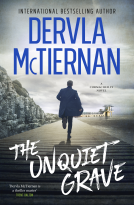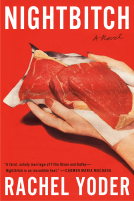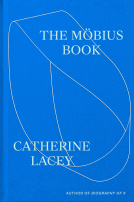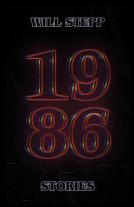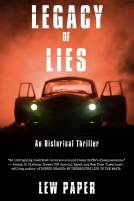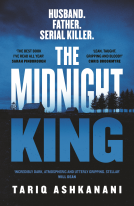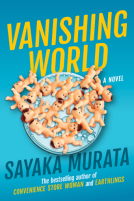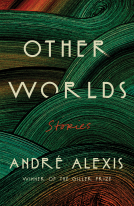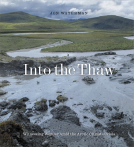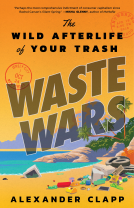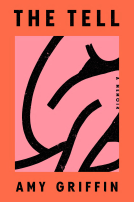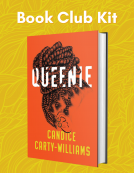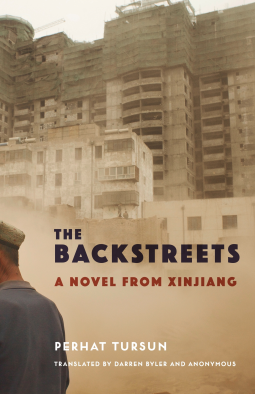
The Backstreets
A Novel from Xinjiang
by Perhat Tursun
This title was previously available on NetGalley and is now archived.
Send NetGalley books directly to your Kindle or Kindle app
1
To read on a Kindle or Kindle app, please add kindle@netgalley.com as an approved email address to receive files in your Amazon account. Click here for step-by-step instructions.
2
Also find your Kindle email address within your Amazon account, and enter it here.
Pub Date Sep 13 2022 | Archive Date Dec 21 2022
Talking about this book? Use #TheBackstreets #NetGalley. More hashtag tips!
Description
The Backstreets is an astonishing novel by a preeminent contemporary Uyghur author who was disappeared by the Chinese state. It follows an unnamed Uyghur man who comes to the impenetrable Chinese capital of Xinjiang after finding a temporary job in a government office. Seeking to escape the pain and poverty of the countryside, he finds only cold stares and rejection. He wanders the streets, accompanied by the bitter fog of winter pollution, reciting a monologue of numbers and odors, lust and loathing, memories and madness.
Perhat Tursun’s novel is a work of untrammeled literary creativity. His evocative prose recalls a vast array of canonical world writers—contemporary Chinese authors such as Mo Yan; the modernist images and rhythms of Camus, Dostoevsky, and Kafka; the serious yet absurdist dissection of the logic of racism in Ellison’s Invisible Man—while drawing deeply on Uyghur literary traditions and Sufi poetics and combining all these disparate influences into a style that is distinctly Tursun’s own. The Backstreets is a stark fable about urban isolation and social violence, dehumanization and the racialization of ethnicity. Yet its protagonist’s vivid recollections of maternal tenderness and first love reveal how memory and imagination offer profound forms of resilience. A translator’s introduction situates the novel in the political atmosphere that led to the disappearance of both the author and his work.
ABOUT THE AUTHOR:
Perhat Tursun is a leading Uyghur writer, poet, and social critic from the Xinjiang Uyghur Autonomous Region. He has published many short stories and poems as well as three novels, including the controversial 1999 novel The Art of Suicide, decried as anti-Islamic. In 2018, he was detained by the Chinese authorities and was reportedly given a sixteen-year prison sentence.
Darren Byler is assistant professor of international studies at Simon Fraser University and author of In the Camps: China’s High-Tech Penal Colony (2021). His anonymous cotranslator, who disappeared in 2017, is presumed to be in the reeducation camp system in northwest China.
Advance Praise
"The publication of Perhat Tursun's The Backstreets, together with Darren Byler's illuminating introductions, is a landmark event in English-language world literature. Tursun's narration of the life of an Uyghur office worker in Ürümchi is unforgettable and quietly mindblowing. The style, mood, and scope are evocative of Camus (or maybe of an alternative Camus who wrote from an Algerian perspective), while still feeling utterly distinctive and unprecedented. A triumph."
—Elif Batuman, author of The Idiot
"Wryly intelligent, acutely receptive to the sounds and smells of the life around him, but also half crazy, convinced that the universe is bombarding him with messages in a code he cannot read, and—finally—subjected to the casual contempt of his Han Chinese masters, Perhat Tursun's young hero gives us a darkly poetic record of a struggle to make sense of a world of oppression. A brave and heartrending book."
—JM Coetzee
"The tragedy of the Uyghurs deserves nothing less than this absolutely brilliant and penetrating book. It is a moral imperative for readers to understand what is happening to this besieged population, and Perhat Tursun's prose is worthy of Kafka's."
—Gary Shteyngart, author of Our Country Friends: A Novel
"If there ever is a work of literature that captures the existential condition of presently intensifying settler colonization of an indigenous city, it is Perhat Tursun’s short, masterful novel The Backstreets. This beautifully translated novel should be on the reading list for every conscientious person mindful of the injustice of contemporary colonialism and for everyone who loves a good read."
—Shu-mei Shih, University of California, Los Angeles
Available Editions
| EDITION | Other Format |
| ISBN | 9780231202916 |
| PRICE | $20.00 (USD) |
Featured Reviews
 Geoffrey S, Librarian
Geoffrey S, Librarian
Darren Byler’s lengthy introduction in which he introduces currently missing (and presumed imprisoned) Perhat Tursun turned out to be much appreciated. The comprehensive context on the author of “The Backstreets” honestly made me feel quite lucky to have the opportunity to read this work. Also appreciated was Byler’s discussion of the major themes explored in the work, though that admittedly wasn’t nearly as necessary. The nameless narrator’s Camus-esque sense of isolation from a distinctly Uygher perspective shone through as brightly as the sun as I accompanied him in dreamlike wanderings around Urumqi in a fog of pollution and his own thoughts and memories. Overall I found “The Backstreets” to be beautiful in its absurd and eerie way, with its mood and vivid setting captured masterfully from its original language thanks to the work of Byler and yet another missing and presumed imprisoned Uygher translator.
 Sookie S, Reviewer
Sookie S, Reviewer
<i>The Backstreets</i> is a stream of consciousness narrative written by a Uyghur from Urumqi, Xinjiang, in Uyghur . The author and one of the translators of the book are currently missing. The author, Perhat Tursun was first detained and then given a long prison sentence. Details of his detention and sentencing isn't released so its unknown as to why he was targeted. Darren Byler in introduction speculates it could be because of his position as a person of influence in literary, social and cultural circles or it could be that this book in itself, published in an online forum at the end of 2013 using VPN and accessing unfiltered news from around the world. Whatever the reason might have been, the author disappeared in 2018. Along with him, a man named D.M who helped Byler with contacts and provided various resources also disappeared around the same time or just before. A.A - the co-translator of the work disappeared right after. The Uyghurs involved in writing and translating this book are currently in detention and outside world has no idea what has happened to them.
Darren Byler's long introduction to this book provides a good context to the book - by building the history of the geography starting post 9-11, rise in Islamophobia not just in China but around the world and the politics it influenced everywhere. Byler's introduction is useful in summarizing a decade long of politics, human trauma and the current situation.
In the book the narrator goes through life in his town of Urumqi. The interactions he has with people, his observation and the memories they evoke, is the book's main charm. It is not always easy to keep up with the narrator as the cultural barrier exists but its always welcome to delve more into everyday life in the city.
Thank you to Netgalley and Columbia University Press for providing me with a free copy of this e-book in exchange for an honest review.
 Karolina B, Bookseller
Karolina B, Bookseller
"The Backstreets" is a very Kafka-esque read, where nothing really happens, and yet with every page with keep getting more and more lost in the city drowning in fog. There is no proper plot here - a few scenes, jumbled up memories. And yet the prose carries us on, together with the nameless protagonist, who keeps trying to find his way, a place where he could belong.
It can be read as a metaphor of the lives of the Uyghur people, who are on their own land, yet not in their own country. Many are "disappeared" into a network of camps, like the author himself, who vanished in 2018. There is a search for meaning, of understanding, and yet there seems to be none, not in the capital of the country, not in the more familiar places like Ürümqi. The author managed to vividly evoke this slightly suffocating atmosphere without saying anything directly.
What makes this title special, despite the very fact that this is (as far as I am concerned?) the first published translation of fiction from the Uyghur language into English, is the introduction written by one of the translators, Darren Byler. A great background regarding the treatment of Uyghurs by the Chinese government, especially post 9-11. It's a painful read, but so important, especially after getting immersed in Tursun's world. The co-translator, referred by the publisher as Anonymous, was also disappeared. This makes "The Backstreets" all the more crucial a read.
 Karmen S, Reviewer
Karmen S, Reviewer
'The Backstreets' is a beautifully written multi-layered story that invites you into the uncomfortable position of getting lost with the protagonist. His life, like the city he lives in, is wrapped in a fog that threatens to erase parts of his identity. He's living in a big city, but you wouldn't notice it, because people act as if he's either invisible or vermin to be exterminated.
The main narratives take the reader through his daily struggles to form relationships with those around him and find a room to rent. All the space he's allowed is a small drawer at his desk, inherited from someone who retired years ago and hasn't cleared his things. As he wanders the streets, looking for a sense of belonging, for numbers that could offer answers, we find out intimate details about his life. The sentences sometimes feel detached from each other, perhaps mirroring the character's detachment from his community, his longing to belong.
The welcome introduction by Darren Byler puts the story in a context that helps understand certain aspects and details that would otherwise be lost. All in all a profound read, albeit not always an easy one, with frequent unsettling fragments and imagery. There's a sense of poetry in the Kafkaesque narrative, which opens many questions to ponder upon.
Many thanks to Columbia University Press and NetGallery for an advanced reader's copy of this book.
 Calzean J, Reviewer
Calzean J, Reviewer
I am not sure how to rate this book. It's all rather sad, starting with the introduction which does a great job of telling the story of the story as well as the author and one the translators both who are Uyghurs and both "disappeared".
The story follows a Uyghur man walking a polluted city trying to find somewhere to stay for the night. The locals all ignore him. He describes the small things he comes across, a shoe, a piece of paper, etc. He also talks about life back in his village, his relationship with the neighbour's daughter, his father, religion and culture. He also talks about his smiling boss, his only possession in the office which is one single drawer of his desk, and his alienation from his fellow workers. He says the only thing he knows is how to be alive but really he does not seem to have a life at all.
The book is well worth reading to hear the voice of an Uyghur and of the introduction which provides the background into their plight.
 Mandy J, Reviewer
Mandy J, Reviewer
This is the first translation of a Uyghur novel into English and for that alone is worth reading. It is by preeminent Uyghur author who is currently in prison, apparently serving a 16 year sentence, detained by the Chinese government as so many other Uyghur intellectuals have been in order to wipe out the Uyghurs and their culture, and again this is a pressing reason to read the book and support even distantly the author. But the novel transcends its political importance by giving an unprecedented literary insight into Uyghur reality, a fascinating glimpse into the Uyghur experience through the mind of an unnamed narrator who lives in a nightmare world, shrouded in the literal fog of pollution and the symbolic fog of an oppressive society. Kafka and Camus quickly spring to mind but there is nothing imitative about the writing, with Tursun creating a unique claustrophobic atmosphere as the narrator tries to make sense of an increasingly surreal existence. He arrives in Xinjiang to take up a position in a government office but it soon becomes apparent that he is not welcome. He proceeds to wander through the city trying to find a place to stay, but meets only contempt and rejection. It’s not an easy read with its stream of consciousness narration and the narrator’s obsession with numbers so the excellent introduction is vital in helping the reader navigate their way into the narrator’s mind as he makes his physical journey through the city. Displaced in his own country, he faces loneliness and isolation, the dehumanising effects of urban living, racism and prejudice, a total lack of connectivity with and alienation from others in a world where he meets only suspicion. Although firmly rooted in its time and place, the book nevertheless has a universal relevance. A powerful and disturbing read.
 Paul V, Reviewer
Paul V, Reviewer
This will be for a niche audience, but it's well written and a bit atmospheric in tone. The intro is helpful and would change the reader's experience if it were excluded. Recommended.
Thanks very much for the free ARC for review!!
 Clare H, Educator
Clare H, Educator
A fascinating read about how people from the Uighur community are being treated in China. I found the book insightful and frightening at the same time. A must read.
As an educator who teaches in the area of genocide studies I will definitely be recommending this book and using excerpts as examples of personal testimonies.
 Ryan S, Reviewer
Ryan S, Reviewer
What a special read. There were many layers in this quite abstract novel. I enjoy the preface that explained more about the author and the stark implications of his tale. One should not read this novel with a light heart, knowing the author is missing, possibly because of his words. I appreciated the authors viewpoints and thoughts, many that made me stop for a reread. some paragraphs were haunting and some were amusing. I search for novels like these, to get inside thoughts that are so different than mine. Thank you.
This is a stream of consciousness tale ripe with foreboding and dark and disturbing connotations.
To escape the poverty trap of village life, our protagonist has secured work at a government office in the city. However, his appointment was likely an example of positive discrimination. He is an Uyghur and is perceived as the lowest of low in terms of the social caste.
He ventures out, roaming the city backstreets in an attempt to find overnight accommodation and thus reveals the underbelly and ‘aroma’ of grime, prejudice, pollution, and violence. It’s almost dystopian but is probably more realistic than we would care to believe. It feels as though the citizens he encounters are devoid of humanity when confronted with his ethnicity and go out of their way to avoid him. He is met with discrimination, mistrust and rejection at every turn. His sense of loneliness and alienation is palpable. Very occasionally, we glimpse some rays of light that penetrate the smog and reappear as endearing memories.
The author of this work, Perhat Tursun, is an Uyghur who is missing and has presumably been incarcerated to be “re-educated”.
Content-wise, this is not an easy read, coupled with the fact it is Kafkaesque in its form. However, it is an essential work of literature that highlights the plight of the Uyghurs and their dispossession.
My thanks to NetGalley and Columbia University Press for granting this e-ARC in exchange for an honest review.
 Mitra K, Reviewer
Mitra K, Reviewer
The Backstreets follows an unnamed Uyghur protagonist through the streets of Ürümchi in China’s Xinjiang Autonomous Region. It is a story of alienation, dissociation, and exclusion. The protagonist moves through the fog of the polluted city as if in a haze, leading a quiet and lonely life outside of mainstream society. The writing style is dense and long-winded, though I believe this is a conscious choice and it accurately conveys the monotony and isolation the protagonist experiences. Still, it made the book hard to get through.
I wouldn’t say that there is a plot in this stream of consciousness style novel. The protagonist’s main endeavor is finding a place to live, which proves difficult as he is discriminated against and assaulted constantly. The unreliability of memory and of the narrator himself add an interesting layer to the story, making the reading experience a foggy and challenging one. I found the descriptions of women as sexual objects in the protagonist’s fantasies pointless and creepy, as they did not add anything of significance but rather only made me grow distant from the protagonist. Still, I have wanted to read this book for a long time, especially because it is rare to find translations of Uyghur stories such as this one (this is the first of Tursun’s works to be translated into English).
Translator Darren Byler provides a very useful introduction of Uyghur people in China and Tursun’s life specifically. Both the author and the anonymous co-translator disappeared in 2017 and 2018 respectively, with Tursun thought to have received a 16 year prison sentence, while the co-translator is believed to have been sent to a so-called reeducation camp. According to Byler these camps regularly target Uyghurs who enjoy significant social influence.
This is not going to be the most rewarding or satisfying book you’ll ever read, but it will show you something previously unexplored and highly relevant.
#TheBackstreets is out September 13. Thank you @netgalley and @columbiauniversitypress for the ARC!
https://www.instagram.com/p/Ch5n4s_rohZ/?utm_source=ig_web_copy_link
Subtitled A Novel from Xinjiang, Perhat Tursun’s The Backstreets tells the story of an Uyghur man in the Chinese capital. Translated by Darren Byler and Anonymous, it is a most unusual book, having no chapters and narrated in the first person. Using powerful imagery, much of the tale is about the constant fog in the city as the unnamed man recounts various experiences and family incidents from his past. Surprisingly, it flows as an endless recount of the man’s life who has no place to stay and a fixation on numbers. An unfolding gem of a literary fable, which is esoteric, yet a gentle lyrical ode to a suppressed culture. The awe-inspiring imagery conveys a subtle philosophical metaphor that is easy to read, whilst challenging you for meaning and understanding. So, it’s an unlikely book but a delightful read, if not for everybody despite its five stars rating. With thanks to Columbia University Press and the author, for an uncorrected advanced reader copy for review purposes. As always, the opinions herein are totally my own and freely given.
There is so much to experienced in this work without its context, and so much to be learned from that context. Western readers will most likely have no idea of the plight of the author or the political/social world that has caused it. The introduction to The Backstreets is impactful for that reason. Within the work itself, one feels the relationship to Camus and Ellison. Alienation within the most crowded spaces is haunting and symbolized effectively in Tursun’s hand.
Thank you to the author, the publisher, and NetGalley for an advance reader copy in exchange for an honest review.
 Robert S, Reviewer
Robert S, Reviewer
As the translator mentions in his comprehensive introduction, the Uyghur author Tursun was influenced by Western authors such as Kafka, Camus, and Ellison, and that's a good indicator of what to expect in this excellent but difficult novel of alienation, ethnic discrimination, and personal tragedy.
While the action, such as it is, takes place on a single night of wandering the backstreets of a large city, the narrator's stream of consciousness wanders over his entire life: childhood in a Uyghur herding community, college in Beijing, and employment in Urumchi, a city in the Uyghur region effectively colonized by Han Chinese. The result is a picture of Uyghur society and its struggle for identity, but told through the very particular mind of a young man.
A dark, disturbing novel that gives an unique insight into the plight of the Uyghurs, persecuted Muslim minority in China. The first person narrator builds the atmosphere of alienation, oppression and violence. It is even more moving thanks to the long introduction, which gives necessary context and reveals that the author himself disappeared in the infamous camps in Xinjiang.
Thanks to the publisher, Columbia University Press, and NetGalley for an advanced copy of this book.
 Sue A, Reviewer
Sue A, Reviewer
The first-person narrator of Perhat Tursan’s The Backstreets brings to life one of the major human rights violations that began in the 1990s and has forced large numbers of China’s adult Uyghur population into detention camps and forced labor and their children into residential schools designed to strip them of their culture. A Uyghur, himself, Tursun is among the members of this ethnic minority to have been “disappeared” by China’s Han majority under Xi Jinping’s administration as Hans migrated into and took over Uyghur territory to exploit the area’s oil and natural gas resources.
The son of a teacher charged with counterrevolutionary activities and imprisoned during Mao Zedong’s Cultural Revolution, Tursun was among the first Uyghurs to be educated outside the Xinjiang Uyghur Atonomous Region. Attending university in Beijing during the 1990s, he draws upon his own sense of alienation and that of fellow Uyghur students in Beijing to develop his unnamed narrator. Whether in Beijing or in urban Urümchi where the he struggles to make a living as a member of the oppressed minority, Tursun’s narrator lives in a fog isolating him from the Han majority around him.
The Backstreets is a bleak character-driven novel punctuated by happier moments as the narrator summons memories of his mother, his first love, and rich Uyghur traditions. Readers will find no suspenseful, action-driven plot to keep them turning pages into the wee hours of the morning. However, this short novel’s social significance makes it well worth the reader’s time.
The lengthy, highly informative introduction provides a solid groundwork for understanding and appreciating this glimpse into the remote cultural conflict that occasionally enters the Western mainstream media.
Thanks to NetGalley and Columbia University Press for an advance reader copy of this important book.
Readers who liked this book also liked:
Publishers Lunch
General Fiction (Adult), Nonfiction (Adult), Teens & YA

